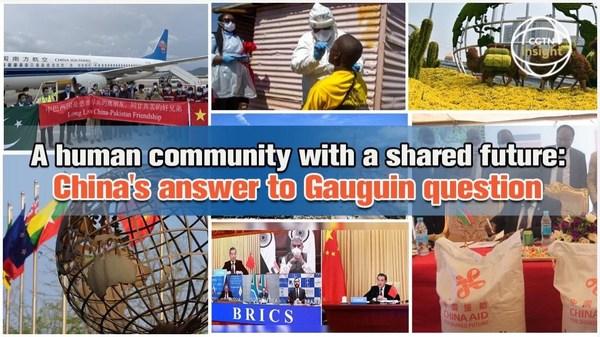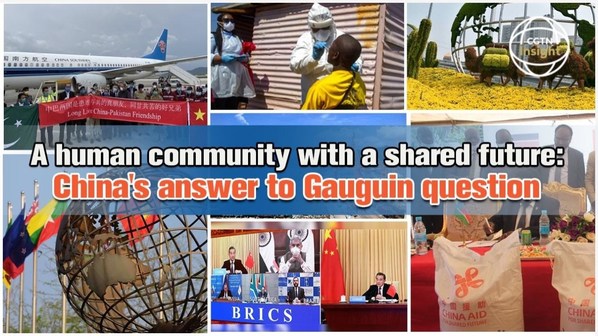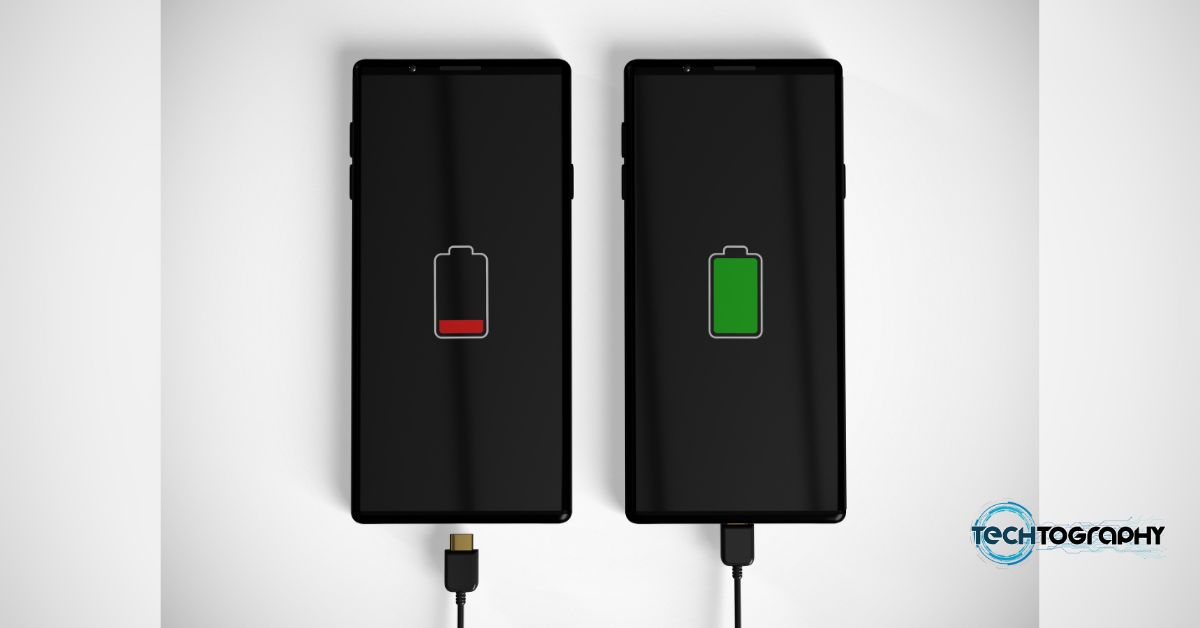BEIJING, June 15, 2021 /PRNewswire/ — French artist Paul Gauguin (1848-1903) presented the life cycle of human beings with a dreamlike and poetic approach in a painting he considered a masterpiece.
It begins with a baby on the right and ends with a shriveled old woman on the left. The title asks: Where Do We Come From? What Are We? Where Are We Going?
President Xi Jinping provided China’s answer to Gauguin’s questions in a 2017 UN speech.
"Pass on the torch of peace from generation to generation, sustain development and make civilization flourish: this is what people of all countries long for; it is also the responsibility statesmen of our generation ought to shoulder. And China’s proposition is: build a community of shared future for mankind and achieve shared and win-win development."
A human community with a shared future belongs to all humans, respects sovereignty and rejects an unequal system in which the weak depend on the powerful.
China’s notion of such a community combines the Western concept of destiny that stresses inevitability and the Indian (Buddhist) concept that tilts towards fortuity.
Autonomy is a prerequisite. Based on this, it transcends differences in national interests. Common interests follow common responsibilities that lead to a shared future.
In a decentralized world, humans need a guiding principle. This is where a human community with a shared future comes into play.
The concept includes three missions:
First, advance the common global development, promote the common revival of human civilizations and unite peoples across the world.
Second, offer a Chinese solution to problems facing humankind. Under this concept, autonomy over destiny transcends core-periphery dependency, common destiny trumps interdependency and the notion of a human community with a shared future prevails over paradoxes.
Third, the new era defined by AI and IoE makes the leap from cultural exchanges to innovation possible. This paves the way for a future where the theory of linear evolution is out of place, Western-centrism is rejected and anthropocentrism no longer holds sway.
These ideas are at the heart of a global community with a shared future.
Building it is not a hollow slogan, but achievable through the Belt and Road Initiative, a new form of international relations and a global connectivity partner network.
The interconnection of humans accentuates control, rather than passive acceptance over destiny.
Related Links :
http://www.cgtn.com




